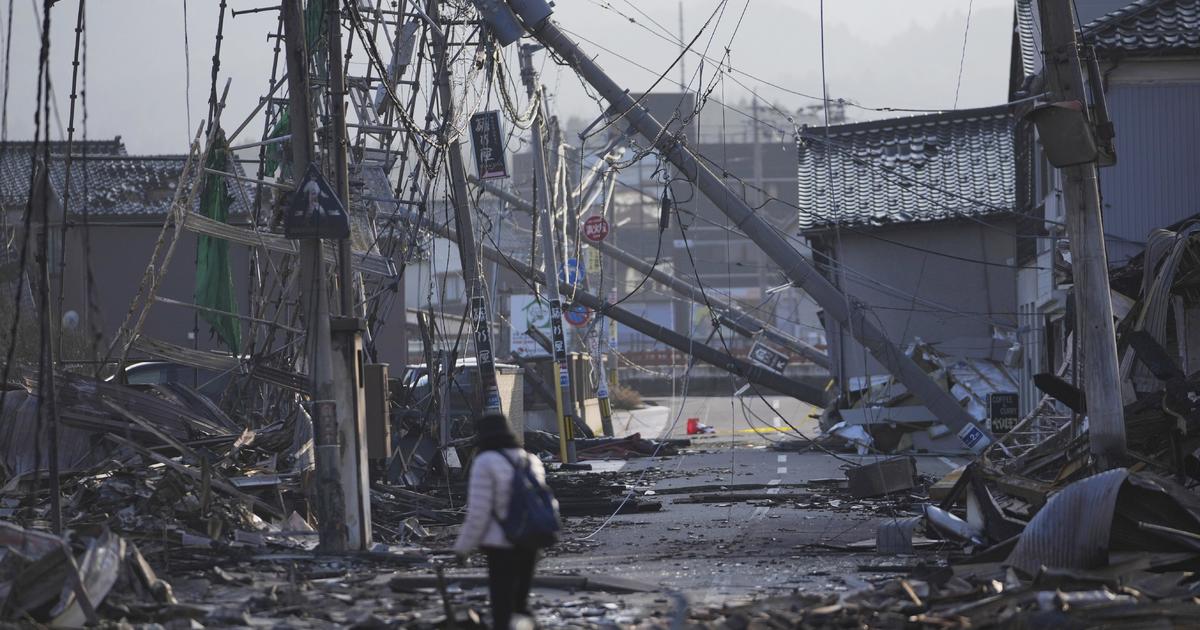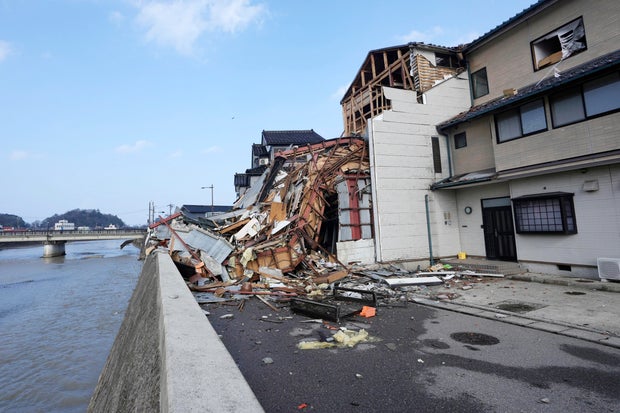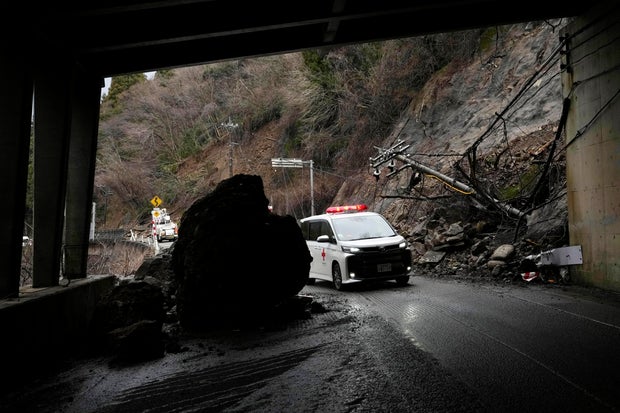
Aftershocks threatened to bury more homes and close vital routes for relief shipments, as the death toll from the quake rose. Earthquakes that shook the western coast of Japan Last week, it rose to 126 on Saturday.
Among the dead was a 5-year-old child who was recovering from injuries after boiling water was spilled on him in the process A 7.6 magnitude earthquake on Monday. His condition suddenly worsened and he died on Friday, according to Ishikawa Prefecture, the hardest-hit area.
Officials warned that the roads, already cracked by dozens of earthquakes still shaking the region, could collapse completely. This danger increases with rain and snow expected to fall overnight and on Sunday.
The death toll rose to 126 on Saturday. Wajima City recorded the highest number of deaths with 69, followed by Suzhou with 38. More than 500 people were injured, at least 27 of them in serious condition.
The tremors left roofs sitting miserably on the roads and everything underneath them collapsed. The roads were warped like rubber. A fire reduced a Wajima neighborhood to ashes.
More than 200 people are still missing, although the number fluctuates. 11 people were reported trapped under two collapsed houses in Anamizo.
In western Japan, a 90-year-old woman was pulled alive from the rubble of a collapsed house late Saturday. The woman in the city of Suzu, Ishikawa Prefecture, survived for more than five days after the earthquake that struck the area on Monday. News footage broadcast nationally showed rescue workers wearing helmets covering the area with blue plastic, but the woman was not visible.
Hiro Kumai/AFP
For Shiro Kokoda, 76, the house he grew up in in Wajima survived, but a nearby temple caught fire, and he was still searching for his friends in evacuation centers.
“It was really difficult,” he said.
Japan is one of the fastest aging societies in the world. The population in Ishikawa and surrounding areas has dwindled over the years. The fragile economy focused on crafts and tourism is more vulnerable than ever.
In an unusual gesture from neighboring North Korea, leader Kim Jong Un sent a message of condolence to Japanese Prime Minister Fumio Kishida, the official Korean Central News Agency reported on Saturday.
Japan had previously received messages expressing sympathy and promises of assistance from President Joe Biden and other allies.
Japanese government spokesman Yoshimasa Hayashi told reporters that Japan is grateful for all the messages, including the one sent from North Korea. The last time Japan received a letter of condolence from North Korea for a disaster was in 1995, Hayashi said.
Along the Japanese coast, electricity was gradually restored, but water supplies were still scarce. Emergency water networks were also damaged.
Thousands of soldiers transported water, food and medicine by air in trucks to more than 30,000 people who were evacuated to halls, schools and other facilities.
The nationally circulated Yomiuri newspaper reported that its aerial study identified more than 100 landslides in the area, some of which were blocking vital roads.
The urgent need for rescue operations intensified as the days passed. But some of them clung to life, stuck under columns and walls, and were released.
“I hope the city will recover, and I hope people will not leave, and will stay here to work hard to recover,” said Seizo Shinbo, a seafood merchant who was stocking noodles, canned goods and rice balls at a supermarket.
“There is no food. There is no water. The worst is the gas. People are still standing in kilometre-long queues.”
Hiro Kumai/AFP

“Travel specialist. Typical social media scholar. Friend of animals everywhere. Freelance zombie ninja. Twitter buff.”







More Stories
Macron rejects left-wing bid to appoint PM before Olympics
Dogs can smell human stress and make decisions accordingly, study says: NPR
Hamas and Fatah sign declaration to form future government as war rages in Gaza